Just In
- 3 hrs ago

- 5 hrs ago

- 6 hrs ago

- 6 hrs ago

Don't Miss
- Movies
 Do You Know Kiara Advani Changed Diapers & Taught At A Play School Before Her Grand Bollywood Debut; Deets In
Do You Know Kiara Advani Changed Diapers & Taught At A Play School Before Her Grand Bollywood Debut; Deets In - News
 Prince Harry's Special Gift To Prince Louis: A First Edition 'Winnie The Pooh' For His Christening
Prince Harry's Special Gift To Prince Louis: A First Edition 'Winnie The Pooh' For His Christening - Finance
 Vodafone Idea FPO: Shares To Debut Tomorrow; GMP Hints Premium Listing; Shares Slump 9%
Vodafone Idea FPO: Shares To Debut Tomorrow; GMP Hints Premium Listing; Shares Slump 9% - Sports
 'They don't want to play Bazball in England, they want to play IPL in India': Virender Sehwag silences Vaughan
'They don't want to play Bazball in England, they want to play IPL in India': Virender Sehwag silences Vaughan - Education
 MP Board Class 10th, 12 Results 2024 Declared, Know How to Download the Marks Memo
MP Board Class 10th, 12 Results 2024 Declared, Know How to Download the Marks Memo - Technology
 OnePlus 13 New Leak Reveals Display and Camera Details; What to Expect?
OnePlus 13 New Leak Reveals Display and Camera Details; What to Expect? - Automobiles
 2024 Kia Carens Secures 3-Star Adult & 5-Star Child Safety Ratings – Detailed Look
2024 Kia Carens Secures 3-Star Adult & 5-Star Child Safety Ratings – Detailed Look - Travel
 Mumbai Opens BMC Headquarters For Exclusive Heritage Tour
Mumbai Opens BMC Headquarters For Exclusive Heritage Tour
10 Healthy Spices That Heart Patients Can Eat
A sedentary lifestyle, poor choice of diet and high level of stress have made the world population vulnerable to coronary heart disease (CHD).
It would surprise us that even in the most affluent nations, there are people who are undernourished due to gorging on the wrong foods that might satisfy hunger pangs but leave them feeling weak, as these foods may not provide the essential nutrients required for the growth and development of the human body.
Factors like heredity, genetics, age, gender, family history,etc, cannot be controlled. But, other risk factors like obesity, high blood pressure and high cholesterol can be controlled by making appropriate changes in diet and lifestyle.
Good Foods For Diabetic Heart Patients
A healthy heart is essential not just to find love but to also go through life successfully. Prevention is always better than cure. However, it also makes sense to minimise the risks, so take care of your heart and adopt healthy habits.
Regular exercise, meditation, yoga and mindful eating are essential for a healthy life. Traditional culinary preparations used a number of spices, which were good for the heart and our general well-being.
Overtime, these best practices got lost due to paucity of time. So, it is time to revive the goodness that lies in the kitchen shelf of every home. Here is a list of ten spices that directly or indirectly help the heart.
So, let us have a look at the 10 best spices that heart patients can eat, without getting worried.

Ajwain:
The sharp taste of ajwain reduces CHD and just a pinch sets off its flavour in cookies, rotis, lentils and vegetables.
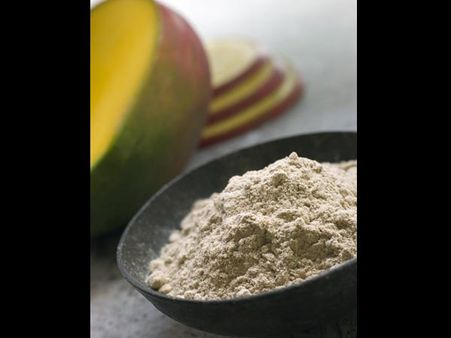
Amchur or Dry Mango Powder:
Popular in Indian cooking, its high vitamin content provides protection against heart disease and this can be added to vegetables and salads to add a natural piquancy.

Cinnamon:
It hailed as the gift fit for the kings and was highly prized and was offered to gods in ancient Egypt. A pinch of cinnamon in a variety of dishes reduces the risk of heart disease in a big way. It lowers cholesterol, controls blood sugar and even reduces blood pressure.
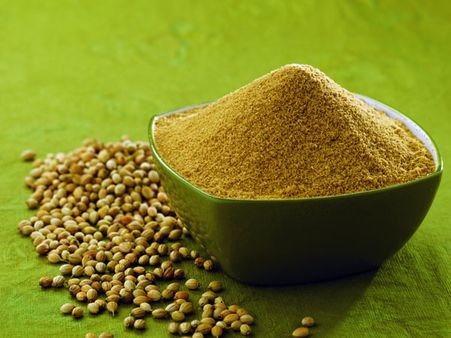
Coriander:
Used since Biblical times, coriander has been studied for its cholesterol-reducing properties, and it has been scientifically established that it lowers the bad cholesterol (LDL) level and increases good cholesterol (HDL) level. Extensively used in Mediterranean, Middle Eastern and Asian recipes, its goodness cannot be overlooked.

Fennel seeds:
Fennel seeds help to maintain healthy levels of cholesterol in the blood stream, thus preventing heart diseases. They add a touch of flavour and aroma to any food preparation.

Fenugreek:
The presence of Galactomannan in these seeds maintains good heart health, while the high amount of potassium in it helps in controlling heart rate and blood pressure.
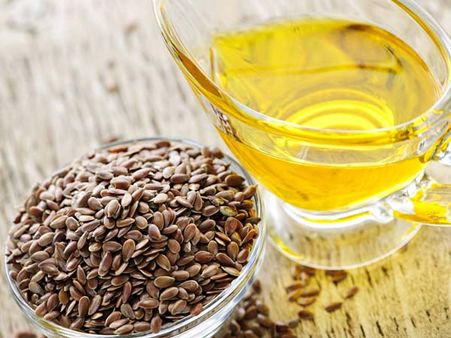
Flaxseeds:
These tiny seeds are a powerhouse of omega-3 fatty acids, and studies claim that regularly adding flaxseeds or its powdered form in vegetables and salads can help reduce cholesterol levels. The soluble fibre present in these seeds traps the bad cholesterol in the digestive system, so that it does not sneak into the bloodstream.

Ginger:
Ginger activates enzymes that eliminate the bad cholesterol from the blood stream. It also prevents the development of blood clots. Fresh ginger, with its rich flavour, has higher levels of gingerol.
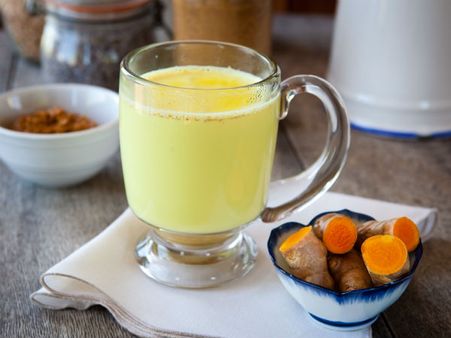
Turmeric:
It prevents the buildup of cholesterol in the blood vessels and plays a crucial role in preventing heart attacks and strokes. By being a good source of vitamin B6, it keeps the level of homocysteine under check. High levels of homocysteine can damage the blood vessel walls, which is a great risk for patients suffering from CHD.
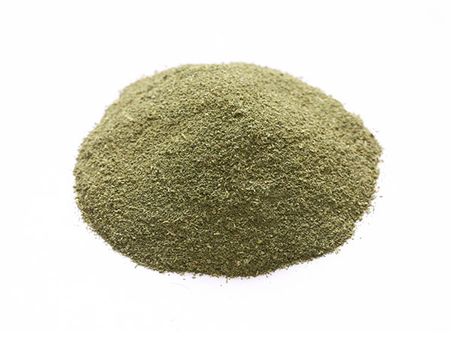
Kasuri Methi:
These flavour-filled dry leaves of the fenugreek plant is an amazing spice that helps in fighting the flab and lowering the risk of heart disease. Due to its bitter taste, it adds a nice sense of taste to any food preparation.
-
 healthTV Actor Rituraj Singh Dies Of Cardiac Arrest: Causes And Symptoms, How It Is Different From Heart Attack
healthTV Actor Rituraj Singh Dies Of Cardiac Arrest: Causes And Symptoms, How It Is Different From Heart Attack -
 healthHow A Heartbreak Can Affect Your Brain And Ways To Overcome And Heal It Post Breakup
healthHow A Heartbreak Can Affect Your Brain And Ways To Overcome And Heal It Post Breakup -
 insyncValentine's Day 2024: Is Origin Of Heart Symbol Associated With A Plant Seed? Here's What You Need To Know
insyncValentine's Day 2024: Is Origin Of Heart Symbol Associated With A Plant Seed? Here's What You Need To Know -
 healthWorld Heart Day 2023: 5 Benefits Of Eating Chicken Hearts For Heart Patients
healthWorld Heart Day 2023: 5 Benefits Of Eating Chicken Hearts For Heart Patients -
 healthGain Control of Your Stress and Guard Your Heart!
healthGain Control of Your Stress and Guard Your Heart! -
 healthIndian Women's Silent Battle with Cardiac Health
healthIndian Women's Silent Battle with Cardiac Health -
 healthHeart Health: Which Exercise Is Best To Reduce Stroke Risk?
healthHeart Health: Which Exercise Is Best To Reduce Stroke Risk? -
 healthBoost Your Heart Health With These Five Exercises
healthBoost Your Heart Health With These Five Exercises -
 pregnancy parentingBipasha Basu Talks About Daughter Devi's Open Heart Surgery: When Do Infants Need A Heart Surgery?
pregnancy parentingBipasha Basu Talks About Daughter Devi's Open Heart Surgery: When Do Infants Need A Heart Surgery? -
 healthHeart-Healthy Breakfast: Discover The Benefits Of Frozen Strawberries
healthHeart-Healthy Breakfast: Discover The Benefits Of Frozen Strawberries -
 healthEmerging Role Of Wearable Technology In Cardiovascular Disease Prevention And Management
healthEmerging Role Of Wearable Technology In Cardiovascular Disease Prevention And Management -
 healthExpert Article: How To Identify If Arrhythmias Are Life-threatening?
healthExpert Article: How To Identify If Arrhythmias Are Life-threatening?


 Click it and Unblock the Notifications
Click it and Unblock the Notifications



